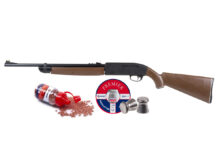What are chicken and ducks’ favorite garden plants? Find out what treats you can grow in your garden to share with your feathered family members!
Do you have chickens or ducks? If so and you love your flock as much as we do, your birds are likely spoiled rotten. And completely ungrateful…
It’s important for your flock’s health, longevity, and egg production to make sure they have optimal nutrition. In addition to their primary food, we like to give our ducks plenty of fresh garden goodies throughout the year, which is one of many reasons we maintain a large organic garden/edible landscape.
Over the years, we’ve learned what garden treats our ducks do and don’t like. Now, we’re always sure to grow their favorite varieties to keep them spoiled with fresh organic produce every season of the year.
The fruits and veggies on this list are also some of our favorites to eat as well. So when our ducks aren’t looking, we’ll steal food from “their” garden. (Shh, don’t tell them.)
Table of Contents
- Top 11 garden plants for chickens and ducks
- 1. MILD Asian Greens
- 2. Chicory
- 3. Lettuce
- 4. Kale
- 5. Mâche
- 6. Austrian Winter Peas (the greens/leaves, not the pods)
- 7. Snap Peas (for the peas in the pods)
- 8a. Small Tomatoes (currants & cherry)
- 8b. Large tomatoes (beefsteaks)
- 9. Sunberries
- 10. Ground Cherries
- 11. Chickweed
- Update: What plants our ducks do NOT like
- Other helpful duck articles that’ll quack you up:
Top 11 garden plants for chickens and ducks
If you’re a gardener (or aspiring gardener) with spoiled fowl, you might want to grow the plant varieties we mention below. Depending on where you live, the dates/months that you’ll grow and harvest these plants will vary, but you can just follow the instructions on your seed packets to get great results.
Based on the preferences of our Welsh Harlequin ducks combined with feedback from other gardeners we know who raise ducks and chickens, here are the top 11 garden plants for chickens and ducks (in no particular order):
*note: growing info below is based on our temperate climate region, Zone 7B
1. MILD Asian Greens
Season: fall, winter, spring
Light: full sun-part shade
Description & growing notes: Napa cabbage, vitamin greens, mibuna, bok choy, and similar MILD Asian greens all offer a similar, delicious flavor. Our ducks love them, and we do too.
Our ducks do not like spicy greens such as mustard greens or arugula.
2. Chicory
Season: spring and fall
Light: full sun-part shade
Description & growing notes: There are tons of varieties of chicory, and they come in all different sizes, shapes, colors, and flavors. Our ducks like it all.
Our favorite chicory varieties for ducks are “leaf chicories” which feature tall upright leaves. You can cut all the leaves at once about 5″ above the ground and they’ll grow back within weeks, making them a highly productive cut-and-come-again veggie.
Leaf chicory is often sold as “dandelion greens” in high end grocery stores even though they’re totally different plant species. In addition to their productivity, one of the best things about them is they’ll produce continuously from fall through spring. We use row cover/low tunnels to keep it happy in the winter.
3. Lettuce
Season: spring and fall
Light: full sun-part shade
Description & growing notes: Did you know that in poultry heaven, the clouds are made of lettuce? At least that’s what our ducks tell us…
They seriously love the stuff, and it’s hard to pick their favorite lettuce variety. Our recommendation: get the ‘Wild Garden Lettuce Mix‘ from organic plant breeding genius Frank Morton’s farm. It offers a dazzling array of colors, sizes, and shapes.
4. Kale
Season: fall, winter spring for us (our hot humid summers are tough here for kale)
Light: full sun-part shade
Description & growing notes: Our girls aren’t too picky about which kale they’ll eat, but for some reason they seem to prefer extra frilly-leafed varieties. Perhaps it’s fun for them to grab and rip the frilly leaves versus the flat leaves (like Lacinato).
One thing we’ve noticed is that the flavor of kale takes on a more intense, almost spicy flavor as the plants get stressed in late spring-summer in our climate zone. Our ducks stop eating it then but absolutely love it every other season.
5. Mâche
Season: fall, winter, spring
Light: full sun-part shade
Description & growing notes: Another incredibly cold-hardy green. We’ve had mâche survive uncovered down into the single digits.
The plants stay small throughout the winter, then doubles in size nearly every week in the late winter/early spring until it starts producing tiny flowers and seed pods.
Mâche greens are delicious – they taste almost nutty. Some of our ducks also love eating the tiny seeds off the plants, which are probably loaded with good omegas which then go into their eggs.
6. Austrian Winter Peas (the greens/leaves, not the pods)
Season: fall, winter, spring
Light: full sun-part shade
Description & growing notes: Peas aren’t just a spring plant if you know the right varieties. ‘Austrian winter’ peas are the cold-hardiest variety we grow, surviving uncovered to around 10°F.
The peas from the mature spring pods make a killer dried pea for soup, but they’re not as good as snap peas for eating raw. The real magic of ‘Austrian winter’ peas is in the delicious edible shoots/leaves, which taste every bit as good – if not better – than sugar snap peas.
They’re very high in protein, and as you might have guessed, our ducks LOVE them. These also make a great nitrogen-fixing cover crop. Learn more about how to grow & harvest Austrian winter peas.
7. Snap Peas (for the peas in the pods)
Season: fall, winter, spring depending on your agricultural zone
Light: full sun-part shade
Description & growing notes: Pretty much every duck parent we know (and we know lots of them) say their ducks go absolutely bonkers for peas in the snap pea category. Thus they grow snap peas and/or buy bags of frozen peas from the grocery store.
However, our flock of Welsh Harlequin ducks must be broken as we’ve never managed to get them to eat a single pea. Don’t take our ducks’ word for it. Peas will likely be very popular with your ducks — if not, you can enjoy them!
8a. Small Tomatoes (currants & cherry)
Season: summer
Light: full sun (smaller-fruited currant and cherry tomatoes can actually grow in part shade, although they won’t produce as much fruit.
Description & growing notes: We have no idea why, but tomatoes are probably our ducks’ absolute favorite food. If we were the only thing standing between our ducks and a tomato, we’d be seriously worried for our health.
We love and recommend ‘Matt’s Wild Cherry’ tomatoes (in the small tomato category) for a few reasons:
- the plants are incredibly robust and need no care;
- the small tomatoes are the perfect size for a greedy duck bill to gulp down whole;
- they readily reseed and come back in the same spot year after year; and
- they’re an absolutely delicious tomato for duck slaves (aka humans) to enjoy by the handful as well.
8b. Large tomatoes (beefsteaks)
Season: summer
Light: full sun (with the larger sized fruits, tomatoes require a full sun spot – minimum 6 hours of direct sunlight per day).
Description & growing notes: One of our favorite things to do on a summer evening is to score a large beefsteak tomato with a knife, put it on the ground, do our “duuuuuckliiiiing” treat call which sends our flock flap-running across the yard, then watch as our flock viciously rips the innocent tomato to shreds within seconds.
It’s like Shark Week, but with tomato juice instead of blood and ducks playing the role of Great White sharks. We’re not sure who gets more pleasure from this activity, us or the ducks. We hope you and your feathered family takes as much pleasure from tomato-sharking as we do.
9. Sunberries
Season: summer
Light: produce most fruit in full sun, but tolerate part shade
Description & growing notes: A relatively unknown fruit attributed to the famous plant breeder, Luther Burbank, sunberries (aka wonderberries) are related to tomatoes and other nightshade fruit, but taste more like a mild blueberry.
The 2-3′ tall plants form prolific clusters of berries that ripen black. Ducks, chickens, and humans are all happier when sunberries are ripe.
Do note that some of our ducks absolutely LOVE sunberries and some are meh on them. Who’s to know the mind of a duck.
10. Ground Cherries
Season: summer
Light: full sun for best fruit production and flavor
Description & growing notes: This strange little husked fruit blew our minds when we first ate it many years ago. It tastes like a cross between a pineapple and a tomato.
Ground cherries are a staple in our summer garden every year. As it turns out, our ducks love them to, especially Svetlana the flock matriarch who could eat her body weight in ground cherries if we let her. Find out how to grow, harvest and use ground cherries.
11. Chickweed
Season: fall, winter, spring
Light: grows well but will go to seed earlier in full sun; thrives in part shade
Description & growing notes:
Chickweed is a delightful “weed” that grows abundantly in the winter and spring throughout the US. The flavor is sweet and mild and most similar to corn silk (yes, the frills that stick up out of the top of a corn husk).
It was brought over by early European settlers since it’s one of the earliest greens to produce, and has since naturalized all over North America. It’s one of the most cold-hardy greens you can grow – we’ve had it live uncovered through 10°F.
It grows crazy fast in the spring and our ducks will absolutely gorge themselves on it. Yes, the reason it’s called “chickweed” is that chickens do indeed love it too. Once you know what chickweed looks like, you’ll probably see it everywhere during its growing season.
Update: What plants our ducks do NOT like
Just as in humans, there seems to be wide variability in what one duck or chicken (or flock) likes versus another. We talk to lots of poultry parents whose birds like things our flock won’t touch, despite repeated exposure.
For example, our ducks do NOT like: watermelon, blackberries, blueberries, strawberries, beautyberries, grapes, or many other fruits. Other people report that their ducks love these treats.
Since our ducks won’t touch them, these plants are not included in the favorites list above. If you find that your flock does like them, grow away!
KIGI,
Other helpful duck articles that’ll quack you up:
- What to feed ducks to maximize their health & longevity
- 5 tips to keep your ducks from destroying your yard
- Do duck have teeth? Learn all about ducks’ amazing digestive system…
- Duck winter care tips
- Duck summer care tips
- How to build a DIY self-cleaning duck pond
and more duck articles from Tyrant Farms!











































